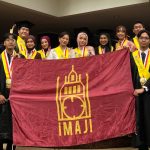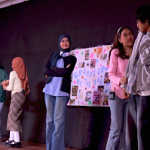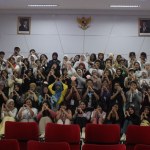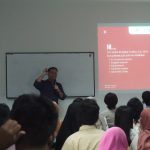Welcome Greeting from the Program Head Dear students of 2022, Welcome aboard. On behalf of the English Studies Program, Universitas Gadjah Mada, I am honored to welcome you to this great study program as you […].
Arsip 2022:
August
About TF-NUS LEaRN TF-NUS LEaRN is a three-week summer program sponsored by Temasek Foundation at National University of Singapore aiming to nurture the next generation of Asian Leaders by providing opportunities for cultural exchange, networking, […].
The past four months might have been the best four months of my life. Indonesia International Student Mobility Awards has given me a chance to study at one of the most prestigious universities in the […].






